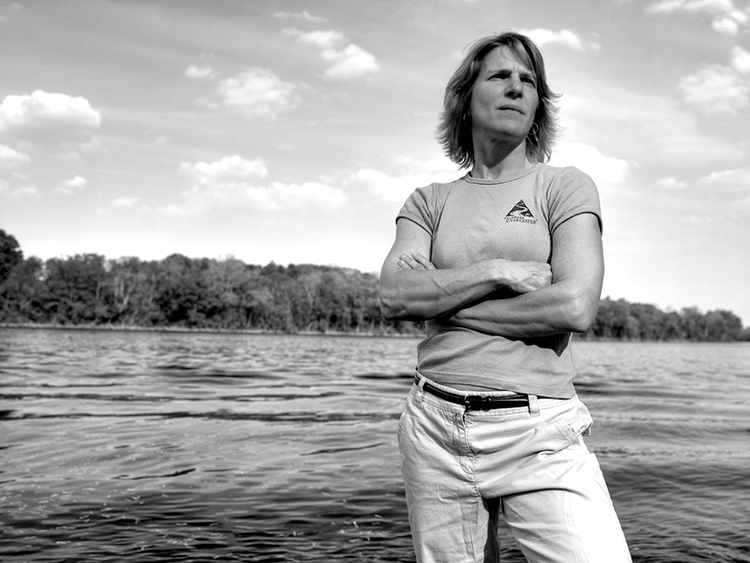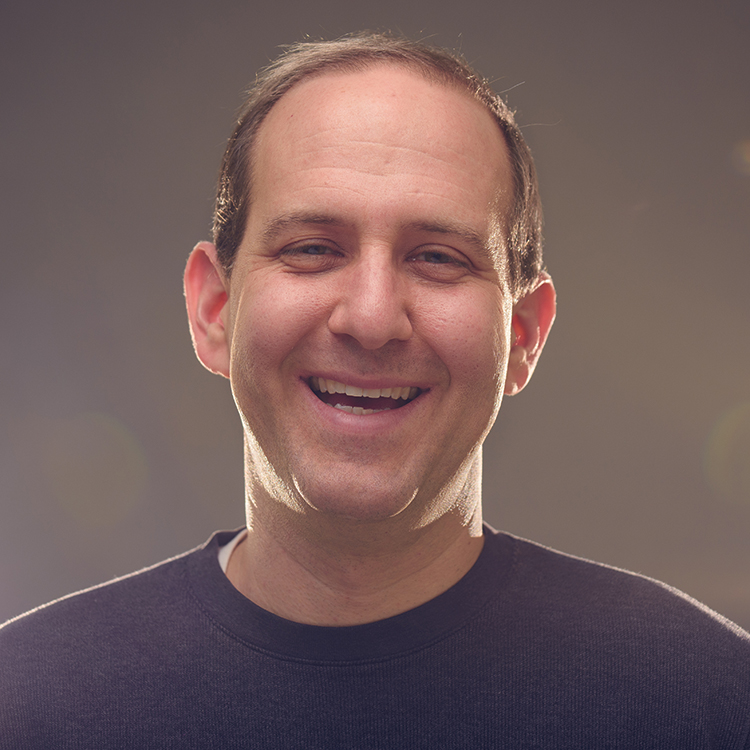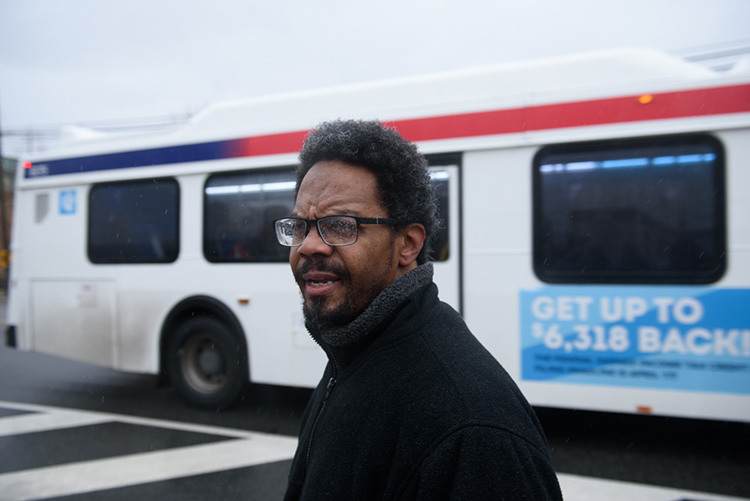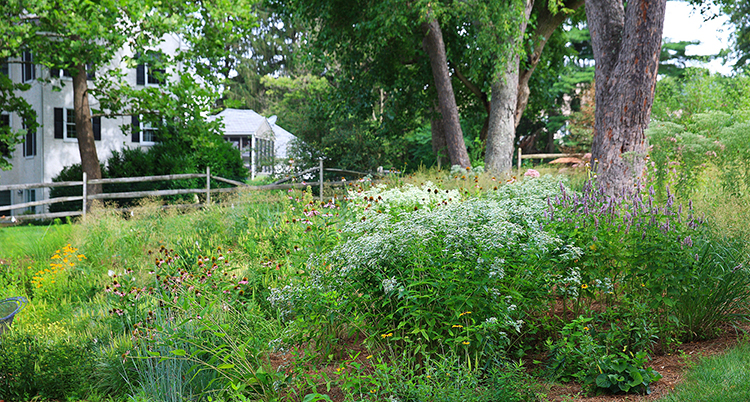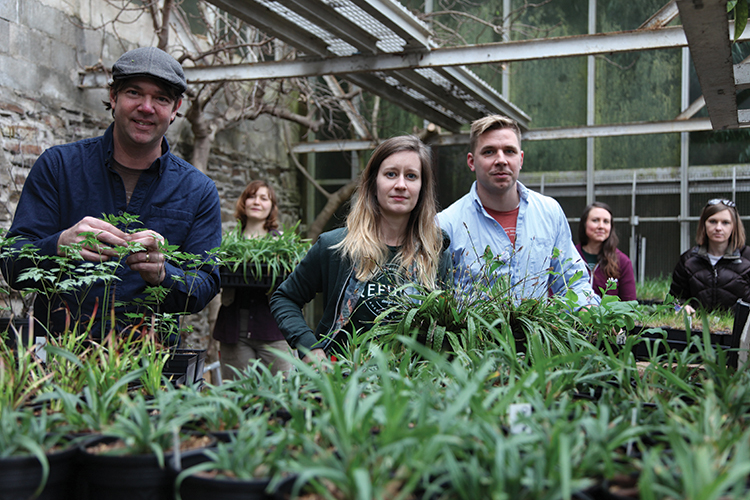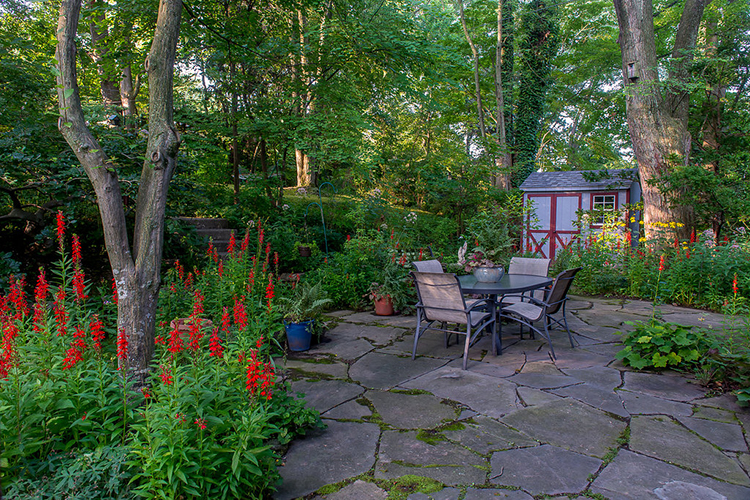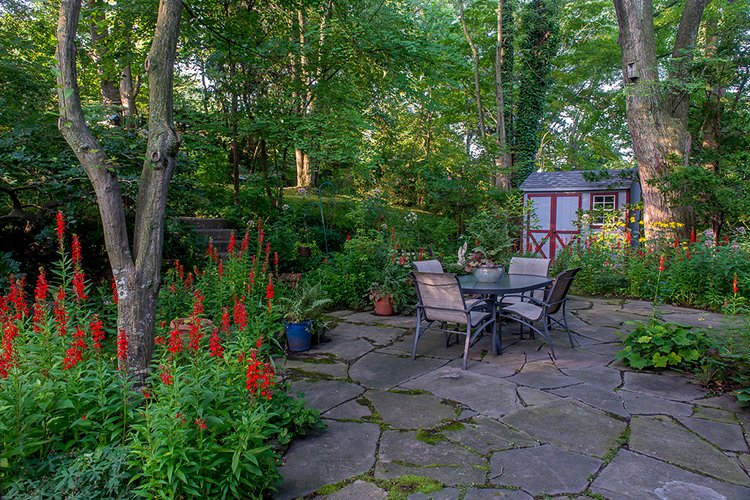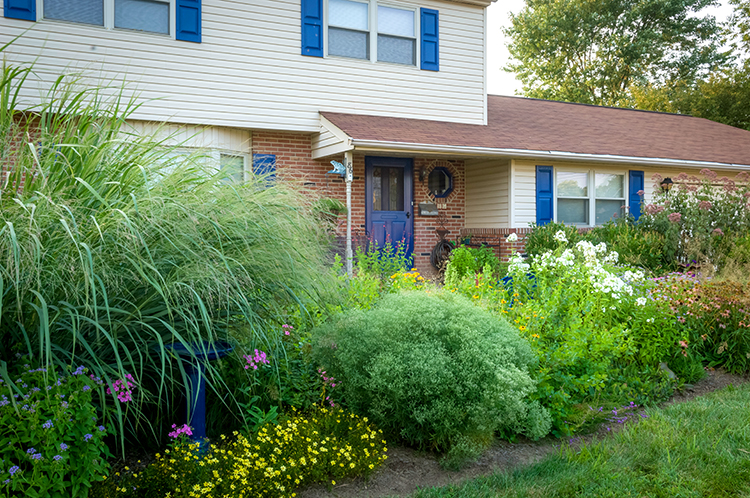There Oughta Be a Law
by Justin Klugh
Take a closer look at any small portion of the earth and you’ll find detailed ecosystems at work, growing and evolving all on their own, frenzied cycles overlapping each other and building more and more complex systems. Delicate, but balanced. Fragile, but resilient. As humanity develops and expands, it’s all too common to find that these passages, the vast and the microscopic, have become battlegrounds between the developmental pushes of modern humans and those who would maintain the precious environmental balance that keeps the planet intact. One of those battles is fought every day up and down the Delaware River, led by the riverkeeper herself, Maya van Rossum.
Early one afternoon, I received a text from van Rossum: “I am in midst of a big problem.”
She is, indeed: As van Rossum writes in her book, “The Green Amendment: Securing Our Right to a Healthy Environment,” human beings are in desperate need of fundamental, inalienable rights to a clean environment, which parallel rights to speech or religion. Without them, the environment can be tapped, cracked and drained, leaving devastation and health risks where there once was sprawling farmland, dense forests or rushing rivers.
But the “big problem” to which van Rossum refers now is that she is racing home from a protest in a car with a rapidly depleting battery. “Pardon my French,” she says, “but my charger crapped out.”
An inability to rely on power, it seems, is a recurring theme in van Rossum’s work. The central goal of “The Green Amendment” is to add to the U.S. Constitution the permanent right to a safe, clean environment. Starting at the top, however, has not been fruitful, as no national leadership has thus far offered a pathway to such a high-level solution.
“We had a failing government in terms of environmental protection under the previous administration, and every administration before that, because our laws are simply not written, designed and implemented in a way that will give our environment the highest level of recognition and protection that we need,” she says. “The new administration has certainly raised the bar in terms of the number of battles we have to take on, but it’s certainly made it a lot easier to make the case that the laws we have on the books are failing us, particularly when we have a government that has such a callous disregard for the power and importance of a healthy environment.”
While legislation such as the Clean Air Act has been pushed through by environmentalists, van Rossum writes, powerful business entities have the influence to change their language, insert loopholes, receive softer punishments or determine whether or not a law even passes.
For now, van Rossum advocates making amendments at the state level, where constitutions are traditionally more fluid. With enough support, the U.S. can catch up to the 147 of 193 nations of the world with environmental protection language in their official charters and make steadfast federal protection of the environment a more feasible option.
In the meantime, van Rossum and the Delaware Riverkeeper Network continue to fight the many small, volatile disasters that dot the landscape of environmental work.
“It’s really a lot of working with communities to get them organized,” she explains. “That means helping them understand the issues they might face—a pipeline, a development project, an industrial proposal; understanding what the threat is… It also requires a lot of research, because every new battle has a new set of facts and a new set of laws that are particular to that battle.”
Chapters in “The Green Amendment” recurrently open with the narration of nightmares: landowners watching their backyards become “Sacrifice Zones,” areas so deeply polluted that rehabilitation is no longer an option; farmers witnessing their livestock being poisoned by the fallout of fracking; families sending children away to keep them safe from gurgling, discolored water supplies.
Each horror affects someone with a name, a family and a story that ended because there was no protection in place for them, a point that often shatters what they had believed to be common sense.
“When they go get a glass of water from their kitchen faucet, they assume that that water is clean and healthy, and the government has an obligation and a responsibility to keep that water clean, and therefore it’s clean,” van Rossum says. “It’s only when somebody points out the reality—that actually they don’t have that as a fundamental right the way they have these other fundamental freedoms like the right to free speech. It brings it to the forefront of their mind. ‘Of course I have the right to have air that isn’t going to make me sick, of course I have the right to clean water… Surely industry doesn’t have a bigger, better right to make profit if it means my child will get sick and might die!’ They’ve assumed it; they haven’t thought about it.”
Van Rossum hopes to see the personal component of environmental protection instilled in future generations, and by telling the stories of people’s friends and neighbors, she hopes to tap into a reader’s empathy.
“People connect with people,” van Rossum says. “It gives them the empathy to say, ‘It’s not happening to me today, but it might happen to me tomorrow, and therefore I really need to care.’”
Van Rossum’s work has resulted in victories: Act 13—an amendment to Pennsylvania’s oil and gas law that appropriates zoning of oil and gas development—slaps a fee on natural gas accruement. But a great deal of “The Green Amendment” is spent conveying the rareness of victories in the fight for a clean environment—not to steal hope, but to create it, because for a long time, victory against mammoth corporate entities with government allowances seemed implausible.
It may seem, while watching a river like the Delaware flow into the vastness of the sea, that we live in an endless world. But this is a finite earth under our feet, and as van Rossum writes, it can’t all be sacrificed. She, along with the Delaware Riverkeeper Network and countless other organizations, are in it for the long haul. This is an uphill battle, and a win means simply that the hill remains.
Like the river she keeps, van Rossum rushes forward: “I sort of babble on,” she says, “because I don’t really have a choice.”

